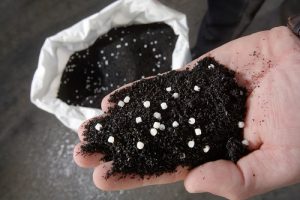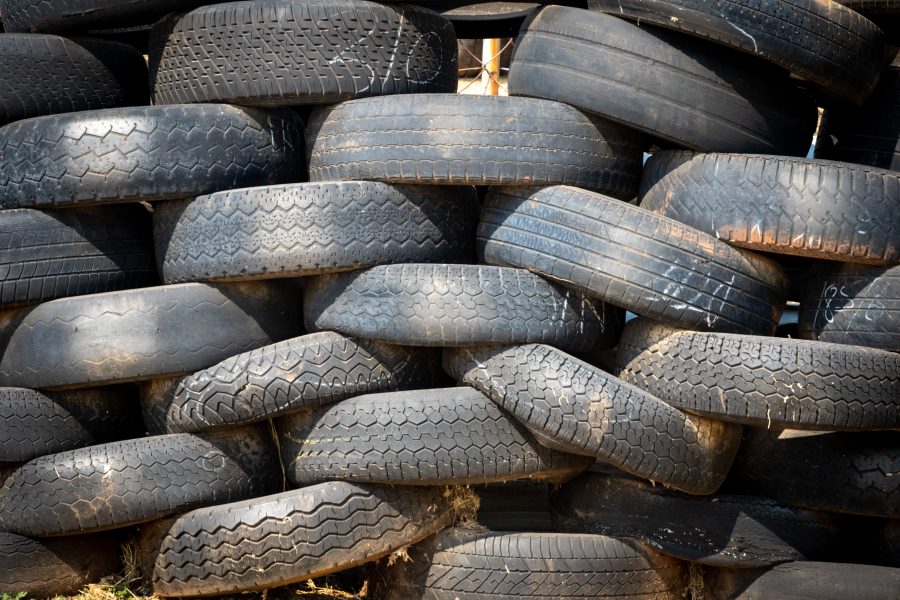Road quality and durability are key concerns for the public sector. The clearly emerging demand for high-performance road construction materials to avoid ruts and cracks, and to save maintenance costs is increasingly moving into public awareness. At the same time, raw material costs for asphalt, and specifically for asphalt modification compounds, have increased considerably.
The company Evonik is pursuing a sustainable and cost-effective approach to road construction. Under the brand name Vestenamer, the specialty chemical company’s process additive for the rubber industry, makes it feasible to process rubber powder from scrap tires to generate asphalt with rubber content. The recycled material is mixed into road construction bitumen or asphalt to improve the quality of the mixtures and to extend the service life of road surfaces.
In the United States, asphalt mixtures containing rubber have been used for decades. Long-term studies have demonstrated a significant improvement in road durability. “The market for elastomer-modified, i.e. rubber-containing, road surfaces has been growing in Europe over the past years as well,” says Frank Lindner, senior business manager. “The positive properties are obvious, since the material significantly reduces cracking, ruts, and potholes in the road surface, which in turn extends road service life.”

For road construction: Rubber powder from scrap tires to generate asphalt with rubber content (Image source: Evonic)
Another sensory experience also speaks in favor of using rubber-modified bitumen: The rubber powder is frequently used in porous asphalt—also known as low-noise asphalt—that cuts down on traffic noise. Scientific studies have documented that using larger shares of rubber powder in road surfaces can result in a noise reduction of one to two decibels. This is highly significant because in human perception, a reduction by 3 dB is comparable to cutting the traffic volume in half.
Recycling scrap tires definitely makes environmental sense. “Reusing recycled tires secures valuable resources,” says Thomas Engenhorst, sustainability strategy manager in the Resource Efficiency Segment of Evonik. “Tires are not classified as waste, but are considered a valuable material, which may not, for example, be disposed of in landfills. This use eliminates the disposal question: Instead of incinerating the tires, they have another life stage in road traffic—not as part of an engine-powered vehicle, but in the form of an elastomer or rubber powder in the road surface.”

















